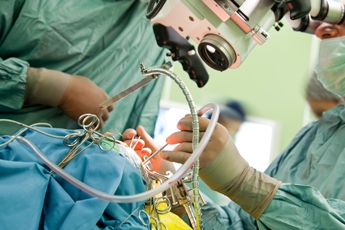Surgical meshes or transvaginal meshes used commonly to treat incontinence and pelvic organ prolapse in women have been at the center of controversies for quite some time now. While the vast majority of women who have the implants do not suffer from any side effects, some women develop chronic and debilitating pain, and other complications. Health issues and risks arising from surgical mesh have triggered a number of medical malpractice and product liability lawsuits involving medical chart review and other processes to help establish the injury.
The surgical mesh is an important medical tool, doctors say, though its efficacy is being debated worldwide. There may be many reasons contributing to its failure in some patients.
In a recent article published in the BMJ, the study authors describe how shortcomings in the process for the marketing approval of implantable transvaginal mesh devices may have exposed women to avoidable injuries, and how to avoid their repetition. The authors quote statistics that show that
- More than 100,000 women are suing manufacturers globally.
- In the UK, more than 1000 women have brought cases, whereas in Canada this number stands at 3,000.
- In the USA, cases under litigation are much more than the FDA reports – 100,731 cases vs. 3979 FDA reports, which seems to suggest considerable under-reporting of harms to regulatory bodies.
The authors also point out the major health concerns caused by mesh devices.
- The mesh devices currently available are predominantly polypropylene based. This type of mesh shrinks considerably after implantation, by up to 50% after four weeks. This could be associated with serious complications such as severe pain, tissue erosion, and dyspareunia that may require repeat surgical intervention.
- Another issue with these devices is bacterial contamination found in up to a third of removed meshes.
Detailed research by the authors on this topic found inadequate regulatory processes could be one of the main reasons for problematic devices entering the medical market. They point out that many of these devices were approved on the basis of equivalence to older approved devices despite important changes. Other important messages they convey include the following.
- Regulation of implanted devices must recognize the higher potential risk
- Evidence constantly pointed to a lack of long-term data to inform the use of vaginal mesh
- Registries should be made mandatory for all implantable devices to track any problems.
Now, the vaginal mesh has claimed the life of Chrissy Brajcic, a 42-year-old woman in the UK who died after a four-year battle with sepsis that was allegedly brought about by a TVT (transvaginal tape) implant. The report goes on to say that this particular category of mesh had been tested only on 31 women and in sheep before being prescribed to patients. It was withdrawn from the market in 2012, but by then it had already been implanted in women like Chrissy.
Some doctors across North America who specialize in hernias and female pelvic disorders however, believe that the mesh is an important medical device. According to them, negative press around the world is giving the mesh a bad name and preventing people from using a product that could help them. Aurogynecologist based in Toronto who treats patients for incontinence using the mesh says that most of her patients are overjoyed and thrilled with the experience that they have had with mesh fixing their problems. However, not all doctors may have the experience or skill to perform these procedures, which could be partially the reason for complications patients experience worldwide. She says that she reviews options other than mesh such as laser therapy or physiotherapy. However, these treatments can cost thousands of dollars and may be out of reach for many patients. She is careful not to offer mesh to patients who have a higher risk of complication, such as women with autoimmune diseases, fibromyalgia, or any history of chronic pain.
Yet another doctor said he uses mesh in virtually all hernia repairs. Complications for pain and other issues are rare, at about one to two percent. He admits that hernia repair or mesh repair may not be perfect, but the risks of using mesh repairs are outweighed by the benefits of mesh repairs.
Both the above mentioned doctors consider it important to obtain the informed consent from patients so that they are made well aware of the risks as well as the benefits.
So how concerned should women be of the transvaginal mesh? Any kind of surgical intervention carries its own share of risks. It is best that women who are recommended mesh repair stay informed about the nature of the treatment, its benefits and risks. They should also provide their complete medical history to the treating doctor so that he/she can decide whether there is any risk involved. Women should feel comfortable to talk freely to their surgeon about complication rates, evidence that the surgery will be successful, and also about surgeon training. In this way, the complications and adverse events caused by medical devices could be avoided to some extent.
Disclaimer: The information provided in the above content has been obtained from various internet resources cited, and are not the opinions or conclusions of MOS (Managed Outsource Solutions).



